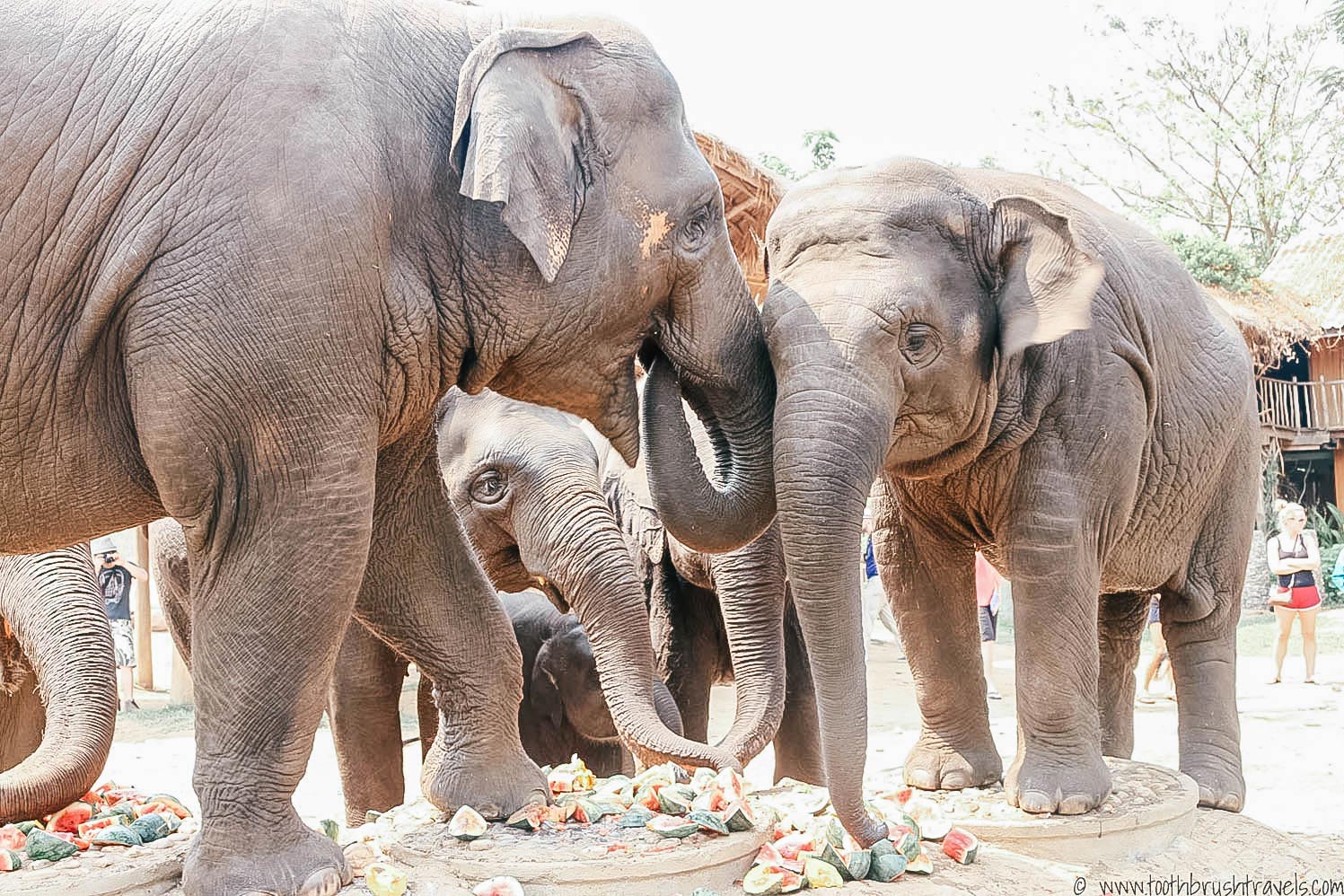When people go to Thailand, it’s almost a guarantee that seeing an elephant is top of their to-do list. Elephant rides, elephant shows, and the obligatory elephant selfie are perpetuated widely and have become the iconic shots of the travelling world, (dis)gracing the covers of travel websites and magazines for decades. But in a world where the closest most of us will get is in front of the TV watching National Geographic, the interaction with such a gorgeous animal is too irresistible for people to turn down. But the thought that escapes so many, is what about the life of an elephant that isn’t captured through a lens?
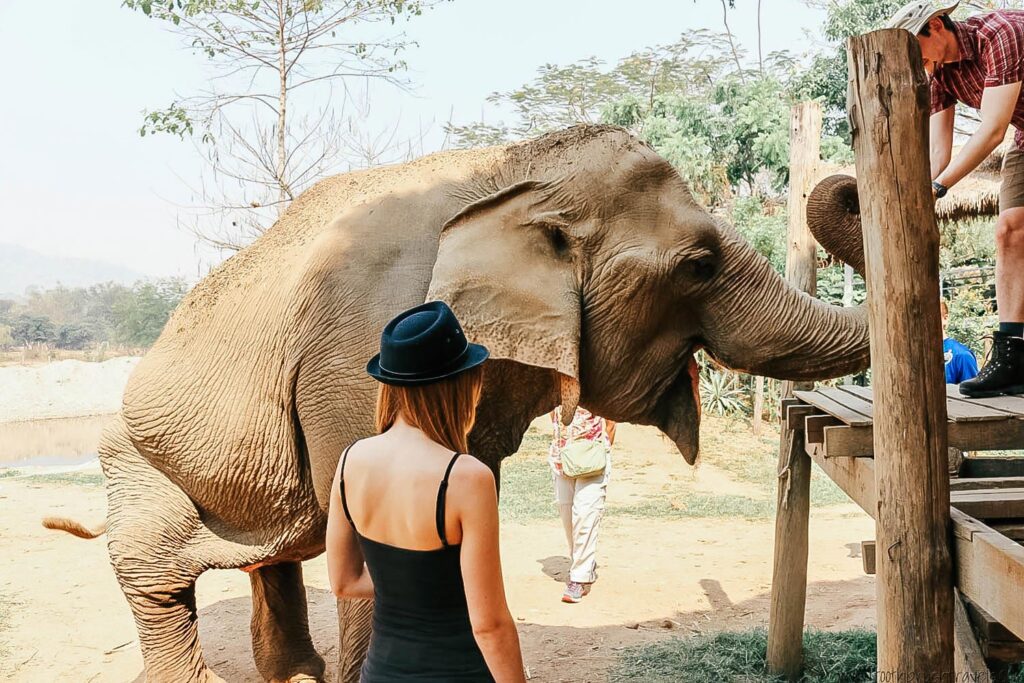
Before I had been to Thailand I had never seen an elephant, and like so many others before me it was the very first thing I wanted to do. After going to a water market one day I noticed a large field full of elephants giving rides to tourists around Ayutthaya’s old city. I excitedly walked (skipped) over and bought a bunch of bananas to feed these gorgeous animals. I looked around for signs of chains, damaged skin and hooks, but couldn’t find anything, so I (naively) booked a ride and hopped on the elephant’s back.
It was the most uncomfortable experience that I have had. Not only did the metal frame hurt my back, but I couldn’t help but feel for the poor elephant beneath me who had to do this all day every day. I thought seeing an elephant would make me happy, but it didn’t. I wanted to see an elephant being an elephant, and the creatures that stood around me were nothing more than puppets. It broke my heart and the thought of how these animals must feel, haunted me. I couldn’t stop thinking about how elephants which are usually so majestic and free, could be reduced to a merry-go-round for grown-ups.
Something didn’t sit right with me about how elephants could go from being so strong-willed and free to obeying somebody’s every command, so I set about doing some research, which is when I discovered that the reason I didn’t see the mahouts (elephant trainers) using any hooks or chaining up the elephant, is because all of the damage goes unseen.
Elephants are smart. They can problem solve, use tools, have self-awareness and show empathy. They even suffer from grief. Elephants are one of the most intelligent animals on Earth, and whilst the amount of intelligence an animal has doesn’t give it more right over another to not be exploited or abused, it does mean they are more affected by it because they understand what is happening to them.
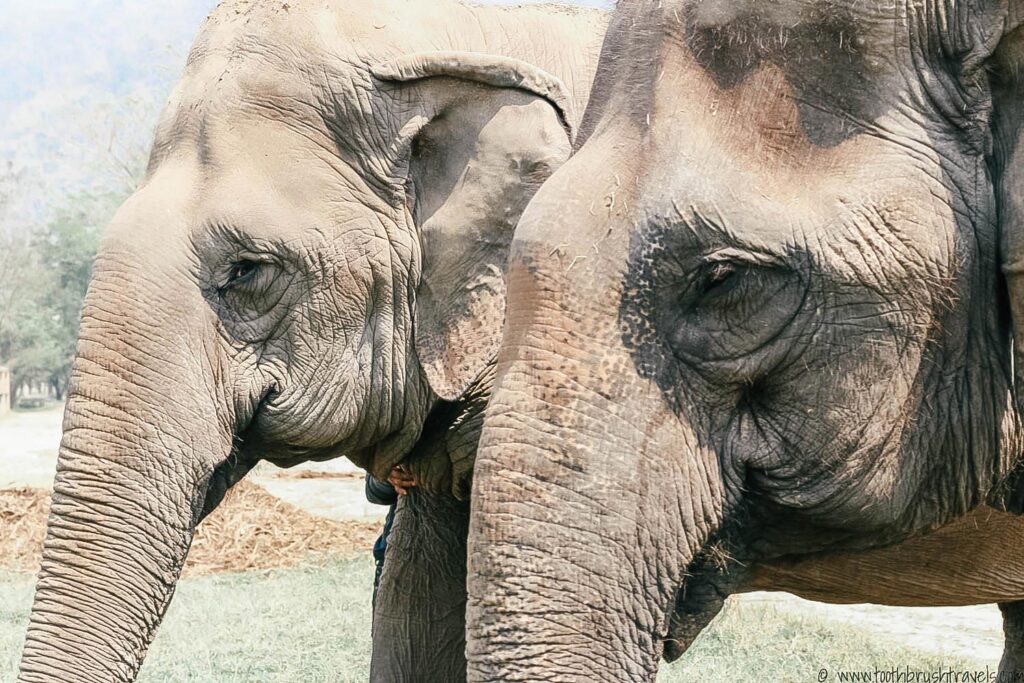
Elephants are also one of the most social animals, they crave company and create lifelong groups of family that care for one another. Their groups have structure and the domestication of elephants revolve around moving an elephant from its family unit and not allowing them to interact with those closest to it. The elephants you ride, the ones you see begging in the street, or chained up by themselves all day not only used to be part of a loving family unit with a mother, but when in the wild elephants have honorary aunts and nannies, that step in to help the mother.
The bond is so strong between mother, aunt and child, that these female elephants will defend their young with their life. So that when the calf smugglers of Thailand, Cambodia and Burma come through to take a baby elephant to train up for tourist exploration, these elephants will defend it as much as they can. This means that for each elephant you see, the smugglers have had to kill his mother, his aunt, his nanny and anyone else that tried to intervene. For each elephant you see chained up, it’s thought that at least two elephants have died. But even if you put all of this aside, there is one question that you should ask yourself before booking your next ticket to watch an elephant show.
How do you get one of the largest, most intelligent creatures to cooperate?
The answer is not a nice one. The answer is that you break it. You break its body until you break its mind, and the result is an elephant that has given up. The result is the transformation of an elephant. A transformation that turns this once free-spirited creature, into a shadow of its former self. A shadow that will meekly obey its mahout for the rest of its life.
Breaking elephants is done by a technique called Phajaan, or in English, “The Training Crush.” An elephant is put into a cage with restricted movement, tied up with ropes to ensure it cannot move or swing its head, and stays there enduring the use of corporal punishment and negative reinforcement until its spirit is broken. The elephants are beaten and stabbed with hooks and sticks all over their bodies. They are sleep deprived and have their food and water withheld all whilst the punishments continue around the clock. And whilst the elephant endures the endless beatings, its training begins. Commands are shouted to get the elephants to move in a certain way and behave in a certain manner, and if they don’t oblige, the beatings continue. Once the elephant is broken and begins to obey the commands, it is released from the cage and tied up to continue with a less… intense version of the training… If it survives. It’s known that many elephants die during the initial training phase. (If you want to know more about Phajaan, there’s a video here:)
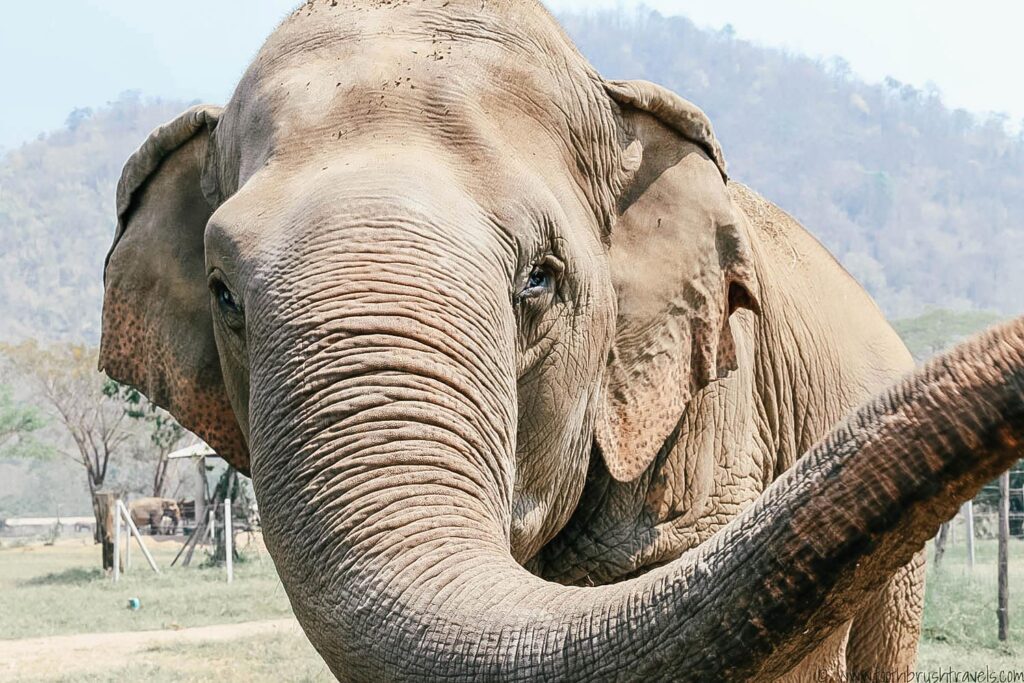
But tourists don’t see this, and so many people think it simply cannot be true because elephants are revered in Thailand. They are celebrated with hedge cuttings and paintings of their silhouette, yet the reality is, that breaking elephants is an age-old Thai tradition that has been carried out for decades. The reality is that one of the most respected animals in Thailand is also one of the most mistreated. But one of the reasons the issue is so complex is because nobody speaks out. Nobody mentions the trauma that almost all domesticated elephants have to go through because of an outdated and cruel tradition. Nobody dares question if the treatment of the animals is wrong, because nobody dares to question one another. And this is what makes this issue so very complex. How do you try somebody’s opinion on something that has been a part of their life for generations? How do you right a wrong that not everybody sees as wrong? It’s a constant struggle, and with animal laws in Thailand pretty much non-existent, with nobody regulating the state of animal welfare, animal rights are all but a whisper that fades in the breeze.
So, elephant lovers, I ask you one thing. If you find yourself in Thailand and want to see an elephant. Find a sanctuary. Find a place that cares about the welfare of the animals and not about how much money they can make. Find a place that wants to reintroduce elephants into the wild. Find a place that doesn’t let you ride or climb all over an animal. Find your way to the Elephant Nature Park.
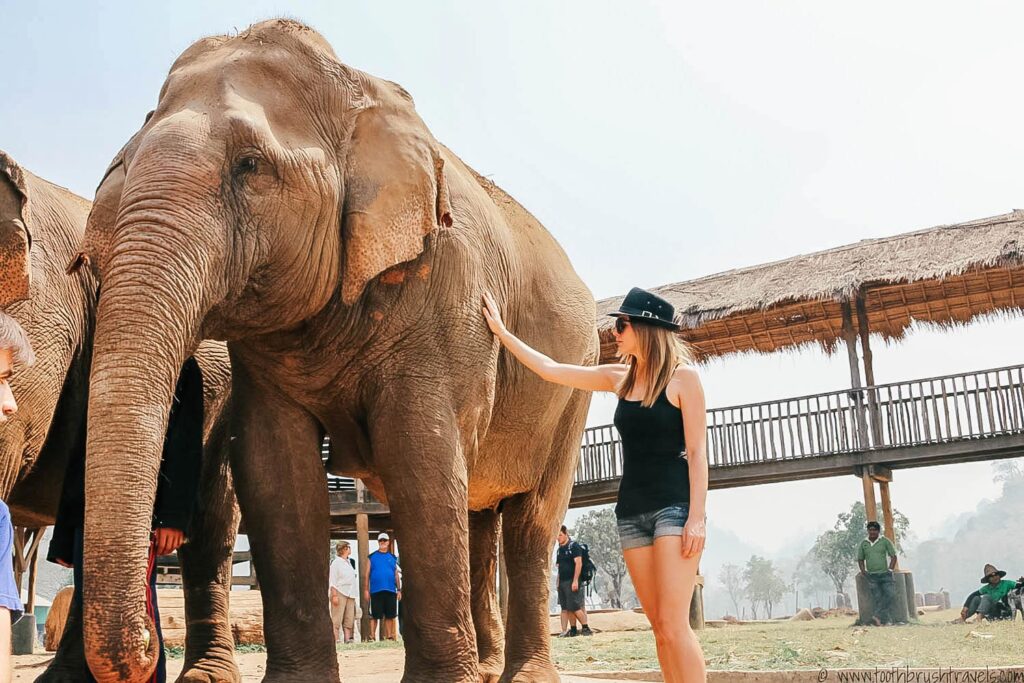
But more importantly, find a way to be a responsible tourist, because I promise you. Your voice and your wallet have the power to make a difference.
